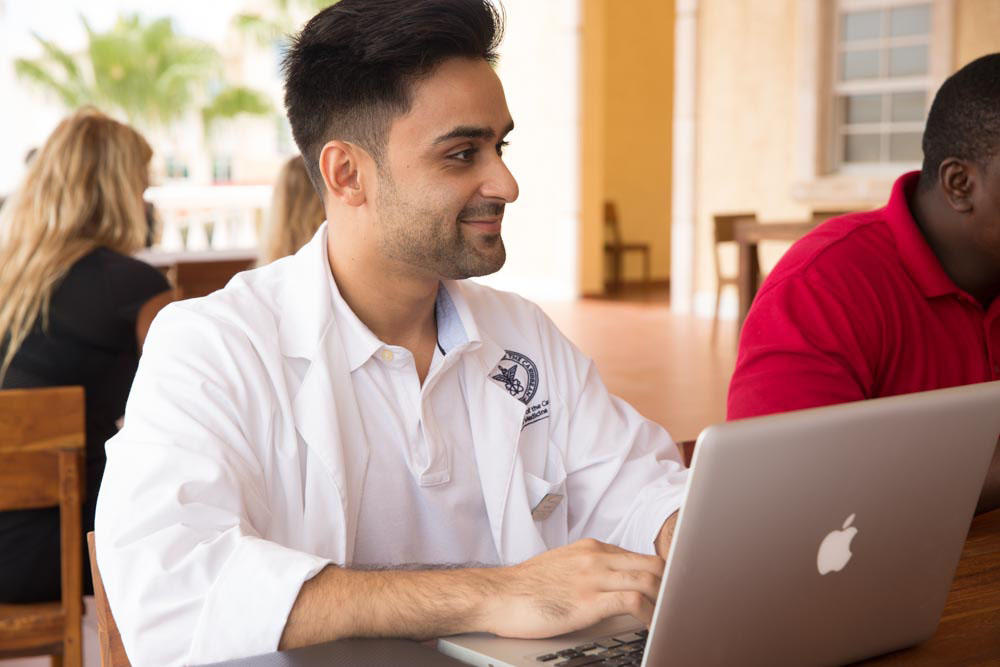Many students enter medical school right after completing their undergraduate degree, while many others take a gap year or more to gain experience and fortify academic credentials. Still others pursue a different career before switching to medicine. All told, the average age of a student matriculating into medical school in the United States is 24 years old. This average accounts for “nontraditional” medical students — a loose term without strict definition — who basically do not enter medical school within a year of undergraduate graduation. If you consider yourself a nontraditional medical student, don’t fret: People do enter medicine later in life — and some physicians may not begin practicing until their late 30s, 40s, or even 50s.
Becoming a physician later in life may initially seem daunting but changing to a career in medicine part way through your professional life could be rewarding and advantageous. Entering medical school as a nontraditional student could create some challenges, but your experience and maturity may benefit your medical school application, your student performance, and your new career goals.
Am I Too Old for Medical School?
Many people who consider medical school later in life wonder, how old is too old for medical school? Is it too late to become a doctor? While there is nothing to stop you from starting medical school at 30, 40, or 50 years of age, there are some important factors to consider:
- Length of educational process – Medical school is typically four years, but residency is another three to eight years. Keep in mind that after you are accepted into medical school, it will be at least seven years before you are independently practicing.
- Financial matters – Medical school is a big investment. Those who matriculate into medical school later in life may have more resources to rely on during school. But you should consider how much time you anticipate practicing as a physician, as well as the return you anticipate on your investment. It can take several years of medical practice to recoup the cost of schooling. The Association of American Medical Colleges (AAMC) offers advice on how to cope economically with the transition from employee to medical student.
- Health and well-being – Medical school and the residency that follows are rigorous and physically demanding, often involving intensive study and long hours on your feet. Someone who is starting medical school should consider their own personal health and what they have to give to their studies and a potential career change.
Becoming a doctor can be challenging, but those who are willing to put in the work and achieve this noble goal will find medicine to be a rewarding career.
How to Become a Doctor Later in Life
Becoming a doctor later in life will be much the same as it would be doing it right after an undergraduate degree, with a few age-specific considerations. It is against the law to discriminate against a potential student based on their age; however, there may be some unique issues that age creates — beyond the fact that adults over the average age of matriculation may have families, homes, and other responsibilities that most younger students do not.
Understand the Admission Requirements
Before you begin the process of enrolling for classes or taking any kind of entry exams, you should understand the requirements for entry into medical school and the path for becoming a doctor. Check off what you’ve already accomplished, and note what you may be missing.
Complete Premed Classes
Becoming a physician later in life will be more feasible if you already have an undergraduate degree or higher in a scientific field. Most medical schools require that you have at least a bachelor-level degree and that you have completed certain courses in chemistry, biology, and other sciences. Different medical schools may have different requirements, so be sure you understand what prerequisites you need for each school.
Also keep in mind that medical schools commonly put expiration dates on admission test scores and prerequisites. For example, American University of the Caribbean School of Medicine (AUC), an accredited Doctor of Medicine (MD) program with locations in Sint Maarten and the United Kingdom, does not accept admissions test scores more than five years old. Most medical schools accept scores dating back just two or three years.
For nontraditional students whose test scores or prerequisites are outdated, you may need to retake them or complete a postbaccalaureate premedical program to be considered for admission. Check with your medical school of choice for more information.
Take the MCAT®
Your score on the Medical College Admission Test® (MCAT®) is an important factor when being considered for admission to medical school. While there is no passing or non-passing score, the better you do on this test, the better your chances of admission.
Someone who is becoming a doctor later in life may have been out of school for several years. There are many MCAT preparation and review courses that may be especially beneficial to nontraditional medical school applicants.
Get Medical Experience
If you do not have any background in the medical field, you will want to gain some kind of medical experience, both to strengthen your application and to get an idea of what being a doctor is actually like. There are many ways to do this, including volunteering at a hospital, shadowing a doctor, or getting a clinical job in a hospital or medical facility. Most medical schools will want to see some kind of healthcare experience in your past.
Apply to Medical Schools
Gaining admission to medical school is notoriously difficult, so you should apply to several — a process that can be costly and time consuming. There is no correct number of applications to submit: the AAMC states that the average applicant applies to 18 U.S. medical schools! It is a competitive applicant field, no matter where you apply.
Complete Interviews
If medical schools are interested in your application, they will invite you for an interview. The percentage of applications that result in interviews will vary based on your overall application, including your MCAT scores and the other components of your application.
Your age could work to your benefit in an interview by showcasing the experiences you have had throughout your life and impressing your interviewers with your accomplishments.
Get Accepted Into a Medical School
Your medical school applications will result in acceptance or denial, or you may be conditionally accepted or waitlisted. AUC, for example, offers conditional acceptance based upon the completion of Adtalem Global Education’s Medical Education Readiness Program. Not being accepted may mean that you need to apply to more medical schools, but it may also mean that you need to strengthen and improve your application. This on-demand AUC webinar discusses various qualifying medical school components to help build a competitive application.
Get Into a Residency Program
After graduating from medical school, you will need to enter a residency program. A medical residency takes place in a hospital or clinic and provides in-depth training within a specific medical specialty. Residency varies from three to eight years, depending on the specialty, and it is one of the final steps in becoming an independent practitioner.
Deciding to Become a Doctor Later in Life
At AUC, our students vary in age and background; you’ll have the opportunity to meet people from all walks of life. Our faculty, too, come from around the world, but they all share a passion for teaching and dedication to student success. Our inclusive atmosphere is perfect for someone pursuing a career in medicine later in life, and we are committed to helping the best students — regardless of age — achieve their goals and dreams. Learn more about AUC and our integrated organ systems-based Medical Sciences curriculum, and when you’re ready, fill out an application. AUC may just be a good fit to help satisfy your determination (newfound or otherwise) to become a physician.
Related resources:




